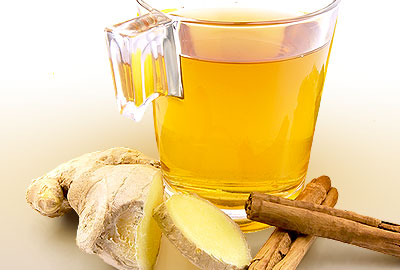Bloating is one of the most frequently experienced symptoms of menopause. Feeling uncomfortably full and suffering from abdominal pain is certainly not pleasant. So, how can you avoid unnecessary bloating in menopause? Take a look at some of the foods you should add or take out of your diet.
Foods to Eat to Beat Bloating
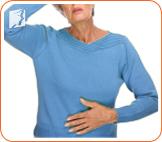
Bloating during menopause is often exacerbated when fluctuating hormone levels increase intestinal gas and fluid retention. The severity of the problem varies between women, with some experiencing short spouts of bloating and others suffering for longer periods of time.
Bloating is often caused by retention of water in the body, so eating specific foods will help flush out excess water and waste. Conversely, eating certain foods can aggravate the situation. Follow the tips below to beat the bloat and return to normal.
Increase consumption of:
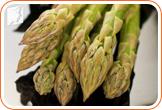
Asparagus keeps your colon working properly and fights off any bacteria in the stomach so food can be digested properly.
Yogurt works similarly to asparagus. It fights off bad bacteria and promotes the growth of good bacteria. Good bacteria in the stomach are responsible for fighting off excess gas.
Pineapple contains a certain enzyme that helps alleviate stomach bloating and stimulates good digestion.
Celery helps flush out excess water and waste in the body.
- Fiber should be consumed to help relieve bloating. Nuts, fiber-based cereals, and whole grains will all help your stomach recover.
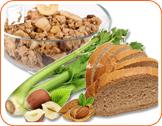
Avoid consuming too many:
-
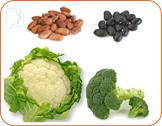
Beans, which can cause gas to build up.
Cruciferous vegetables like broccoli, cauliflower, and cabbage, which are all foods that increase the retention of gas. Gas retention causes the stomach to bloat.
Fast food & salty foods should be avoided as much as possible. Salt causes our bodies to retain more water which increases bloating. Instead of seasoning foods with salt, use a little black pepper.
-

Coffee or any caffeine product might result in bloating because they over-excite the digestive tract and can cause more gases to build up.
Dairy products will sometimes cause bloating because of lactose intolerance. Try cutting down on milk and cheese and see if that makes a difference to your body.
Recommendation
To understand what foods trigger your bloating, keep a diary of your daily consumption. Take note of what foods you eat and how they affect your body. Try adding certain foods to your diet and taking some away to see if the problem disappears.
Click the following link to find out more about natural treatment options to beat bloating.
Sources
- Hutchinson, Susan M.D. "The Stages of a Woman's Life: Menstruation, Pregnancy, Nursing, Perimenopause, Menopause". November 2007.
- Love, Susan M.D. Menopause and Hormone Book. New York: Three Rivers Press, 2003.
- BMJ Group. "Menopause: What is it?" Patient Leaflet. 2007.

